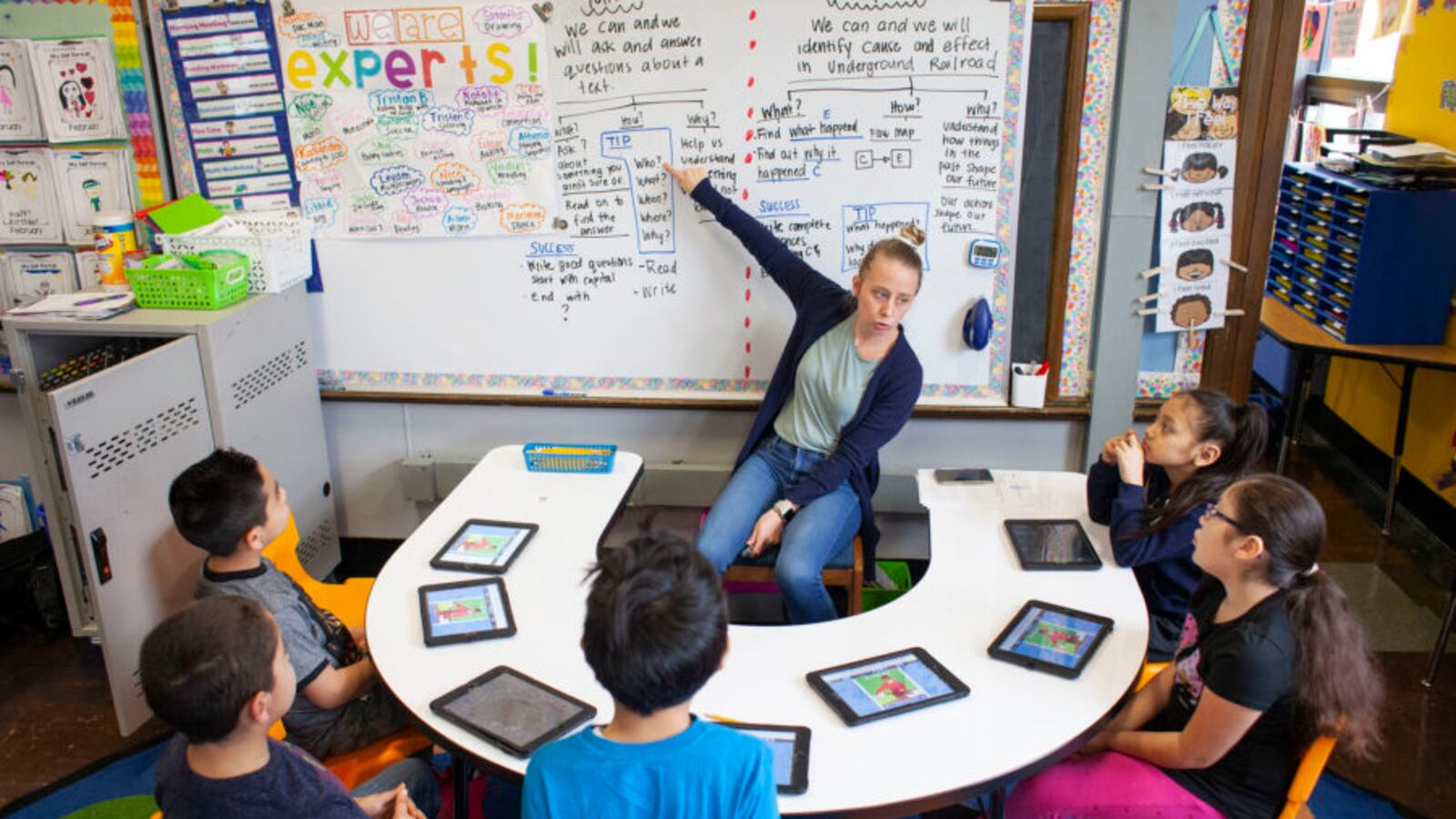iNACOL, a group formed to promote online learning, is rebranding — and trying to shed its association with education technology.
iNACOL, which stood for the International Association for K-12 Online Learning, is now the Aurora Institute. The group says the change, announced at its annual event on Monday, reflects its ongoing shift in focus toward competency-based and “personalized” learning.
It’s a sign of the times. Enthusiasm has grown among policymakers and philanthropies for changes that make schools and classes more tailored to individual students — in some cases with the help of technology. But there is also skepticism among parents about the role of technology and screen time, and more acknowledgement from supporters that some tech-focused efforts to remake schools have fallen short.
“We have had far too many educational technology products that allow some flexible pacing that describe themselves as personalized — and they’re just not,” said Susan Patrick, the president of the Aurora Institute. “They’re not offering different pathways per person. They’re not offering personalization to a student’s own interest or responding culturally to that student.”
iNACOL, which has described itself as the “leading advocate for transforming learning,” was founded in 2002 as enthusiasm for online learning began to grow. In the years since, it has hosted events for like-minded educators, disseminated standards for online courses, and published reports about online learning.
The Aurora Institute plans to continue much of that work, and it has drawn the support of a number of philanthropies, including the Chan Zuckerberg Initiative. (CZI is a funder of Chalkbeat.)
Personalized learning remains a nebulous concept, but iNACOL has defined it in part as “enabling student voice and choice in what, how, when and where they learn.” Competency-based learning, which means allowing students to progress when they have mastered given material, is often a part of those efforts.
These ideas have gained traction across the country, but they’ve also faced challenges.
Maine, for instance, adopted a sweeping law to implement competency-based high school diplomas in 2012. Six years later, the state partially repealed it after backlash from parents, students, and in some cases, schools.
Similarly, efforts to bring technology into schools and revamp some of their core structures for the sake of personalized learning have faced skepticism across the country. Complaints from parents and students in schools using the Summit Learning technology platform, for example, have garnered widespread media attention.
In 2018, a messaging document put together by two groups with ties to the personalized learning movement advised de-emphasizing technology and any dramatic changes to schools when pitching the idea to parents.
“In attempting to generate excitement, we inadvertently scared the public,” it noted.
Still, Patrick says new models are necessary to prepare students entering a rapidly changing economy, and that teachers need to shift from “knowledge transmission” to helping students “learn how to learn.”
Others, like journalist Natalie Wexler in her recent book, argue that students need more concrete knowledge, not less, and learning how to learn in the abstract is difficult or impossible. There is also limited evidence that the economy is changing at a more rapid pace than in previous decades.
Research on whether making school more personalized, or switching to track student competencies, actually improves student learning remains thin. Some highly touted models have produced disappointing results or have not been studied.
At the same time, some technology products have proven promising. An online homework program known as ASSISTments has been found to increase student achievement in math. A program known as Kickboard designed to help teachers track student behavior data has been linked to lower suspension rates. Certain adaptive learning programs, in which students progress at their own pace, have been found to boost test scores.
Skeptics might wonder whether the rebrand is just that — a new name for an effort to push technological products into schools. Patrick insists that the pivot reflects a genuine shift, and that there has been a realization that online-only approaches miss out on something important.
“There’s still room for technology, but understanding that technology has to be in service of a very humanistic approach,” she said. “Fundamentally, learning is about people.”


